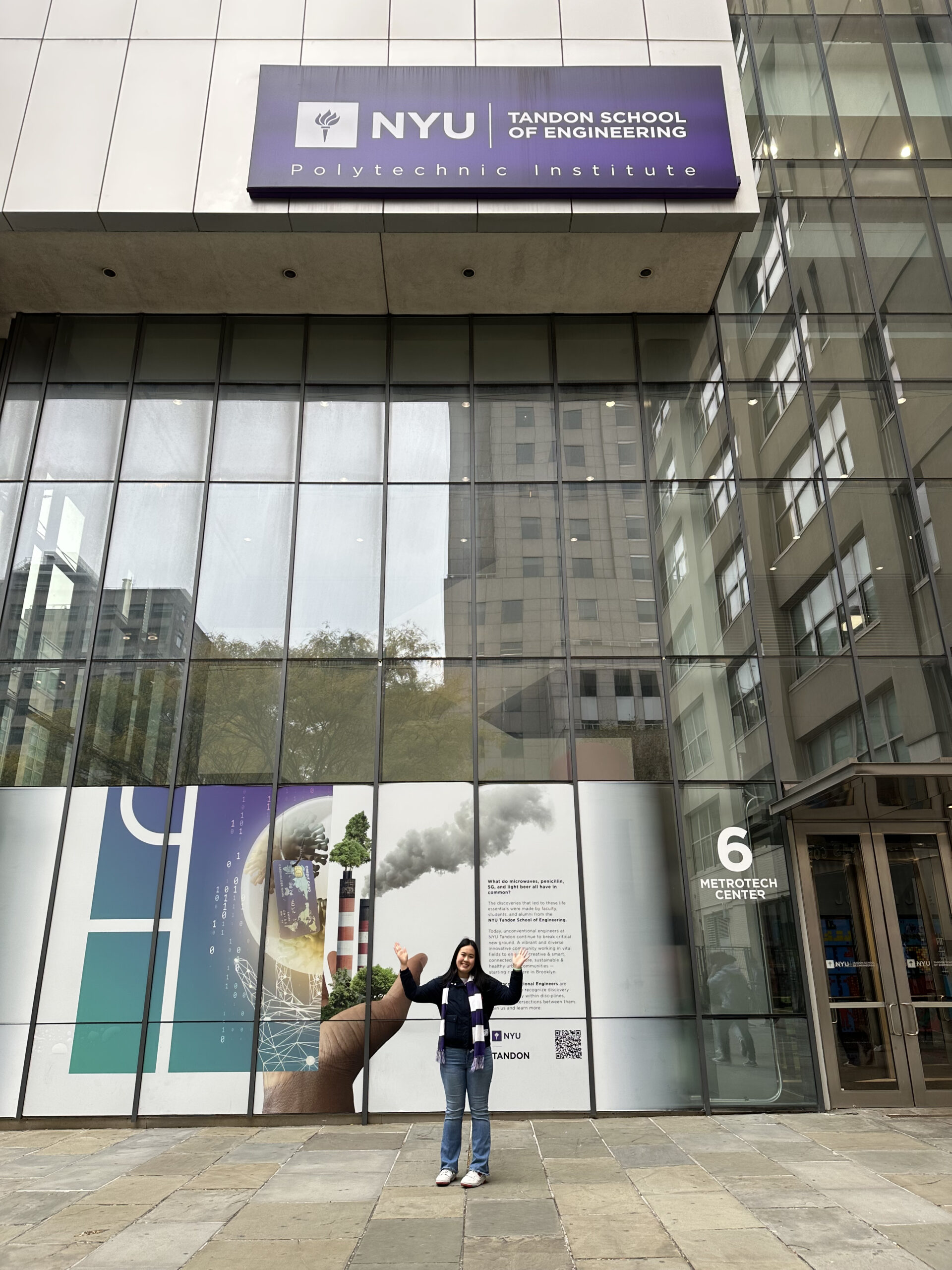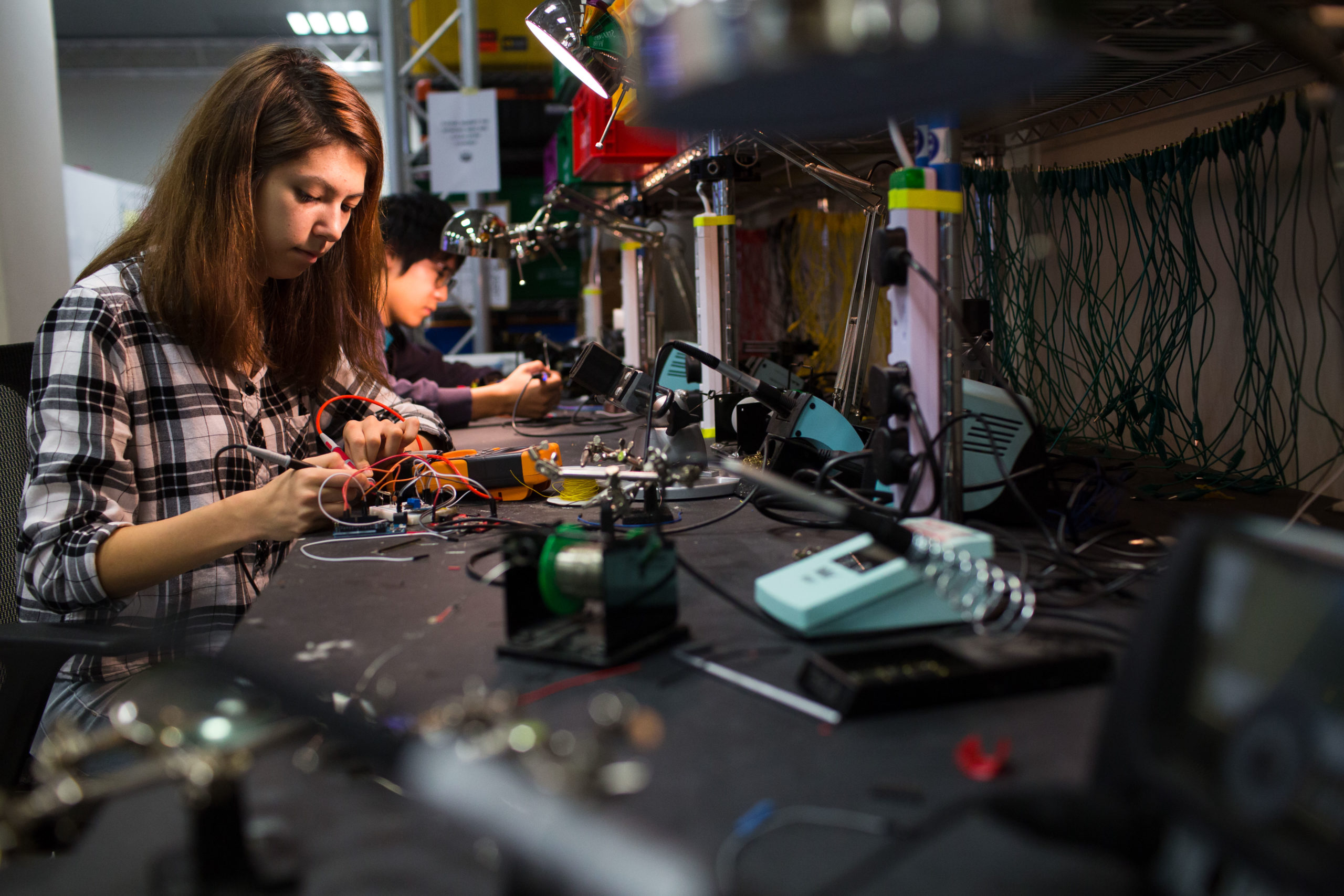Published May 28, 2024
Tandon’s Experiential Learning Center: A Hub for Exploration and Experimentation
The TL;DR
- The Experiential Learning Center (ELC) is the NYU Tandon School of Engineering’s one-stop shop for connecting students with a range of immersive and multidisciplinary learning, collaboration, and career-readiness opportunities.
- The ELC provides a space for students to explore their interests through clubs, teams, courses, and conferences.
- Tandon students build community as they collaborate with their peers and receive guidance and support from ELC staff.
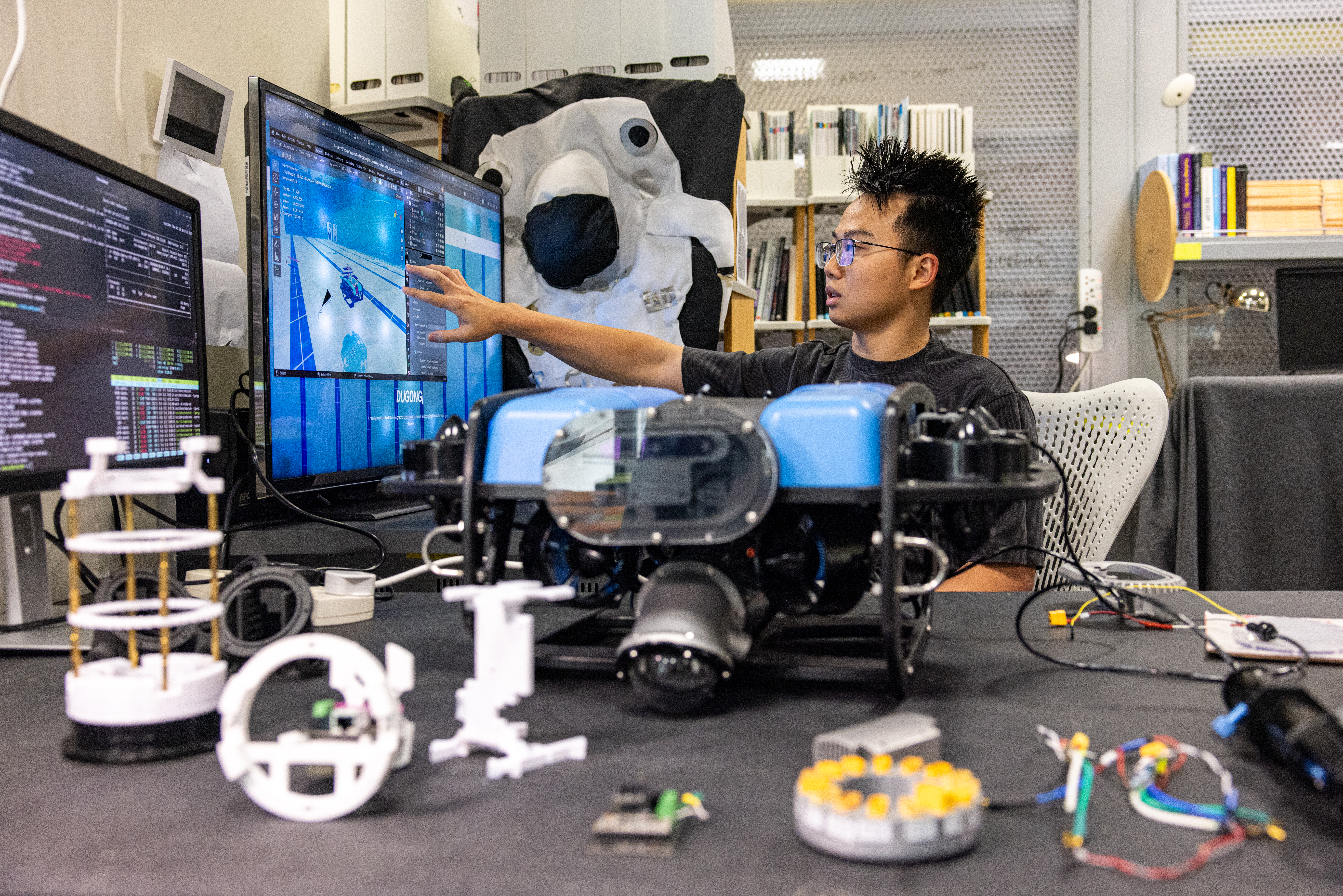
At NYU, experiential learning is at the heart of the college experience—a fact that students who attend the Tandon School of Engineering know well. From designing and building off-road vehicles to testing and assembling robots, Tandon students harness cutting-edge technology to take their coursework outside the classroom and into the field. Indeed, at Tandon’s Experiential Learning Center (ELC), students can decide which project-based coursework and multidisciplinary opportunities are best for them. And with New York City as their playground, they’ll find ample opportunities to build a better future.
The Experiential Learning Center is Tandon’s one-stop shop for budding engineers. Here, NYU’s innovative students tackle the problems of the modern world in their own way. The ELC offers an array of options for students to explore their interests, like clubs, teams, courses, and conferences. Elizabeth Waters, ELC managing director, says that exploration and experimentation are critical parts of an engineering student’s path. “You can find out what you don’t know. Plus, you can see what you’re really interested in and grow those interests,” she explains. For Waters, experiential learning is what makes NYU students some of the most well-equipped graduates.
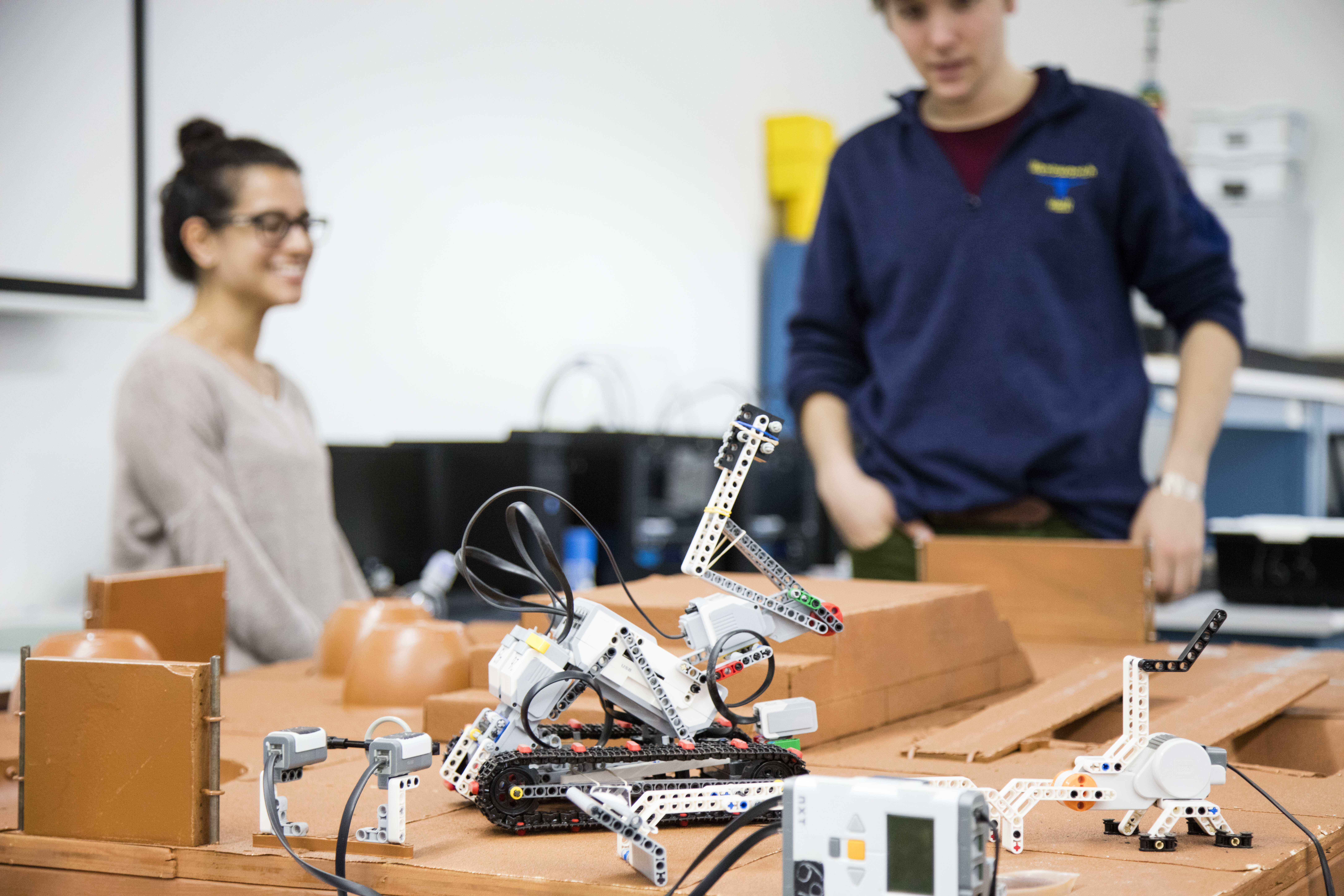
Gaining Confidence Through Collaboration and Camaraderie
Thanks to the Vertically Integrated Projects (VIP) program, Kimberly Sinchi has been on a robotics team since she started at NYU. By working closely with other students, she picked up new skills she wouldn’t have gained in the classroom, like wireless communications and computer vision. “The team’s patient and uplifting environment is what kept me so passionate about the project. Even when I was having trouble grasping all these new concepts, they supported me,” says Kimberly. Today, she’s confident heading into the workforce because she’s had the space to test her theories and take risks. “Each one of these experiences allowed me to apply my technical and leadership expertise to the best of my ability.”
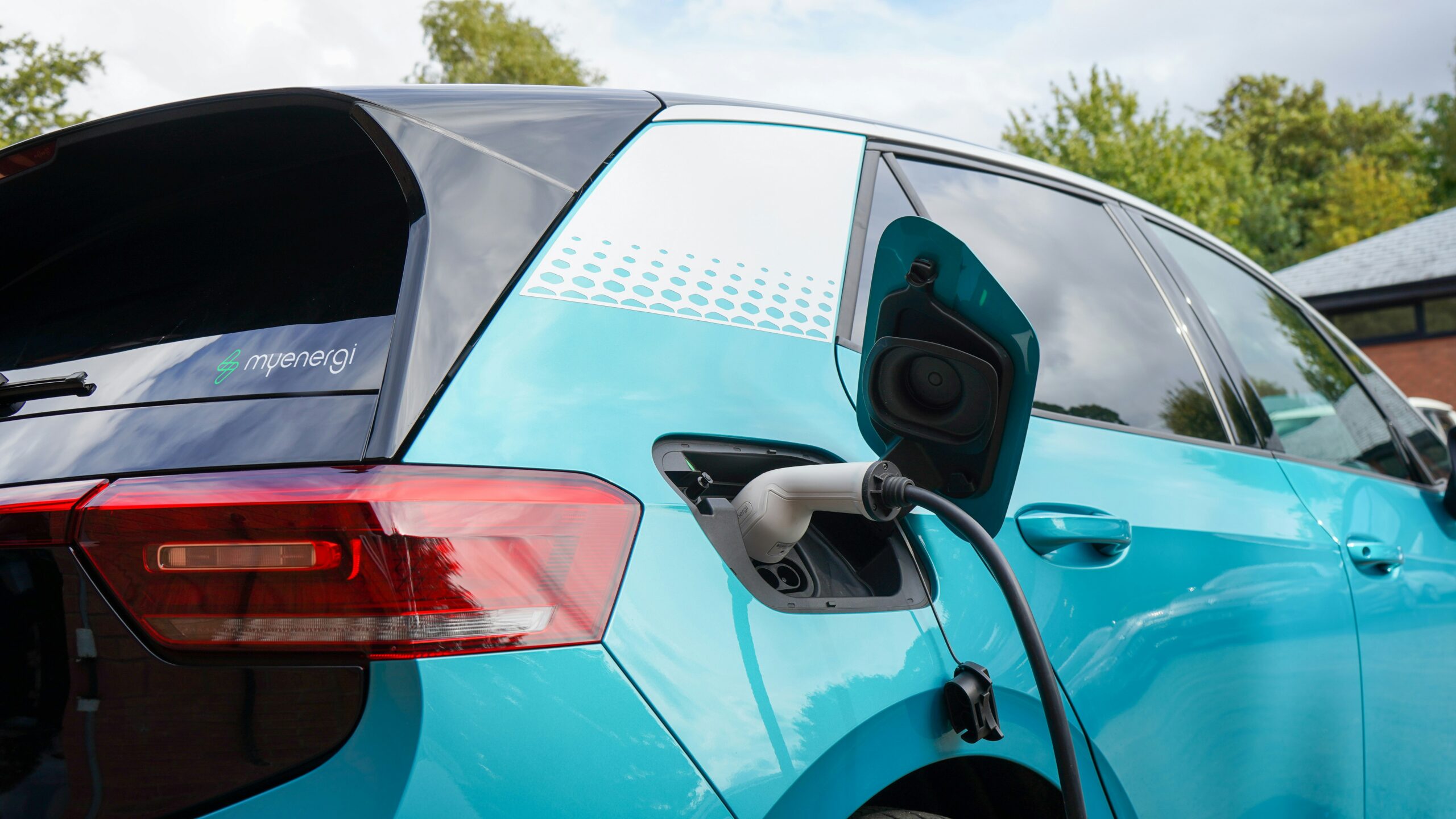
Forging a Climate-Friendly Future
Ever since senior Devansh Agarwal was in high school, he’s had big dreams of transforming fossil fuel–reliant vehicles into sustainable, climate-friendly cars. “The idea is to replace traditional gas cars with a new form of electrical technology,” he explains. So, for his senior design project, he decided to tackle the challenge himself. As a result, Devansh turned to the ELC for funding and guidance.
Soon, Devansh received support from the Prototyping Fund, a collaboration between the Design Lab at the NYU Tandon MakerSpace, the NYU Department of Technology Management and Innovation, and the NYC Future Manufacturing Collective. It offers students and teams up to $2,000 to innovate new technologies. With additional resources, he set his plan in motion, recycling old cars and bringing them into a sustainable future. “You can’t just throw away old cars,” says Devansh. Instead, he explains, he’ll replace parts of them “so that the entire car remains the same. But now, it can run on electricity.”
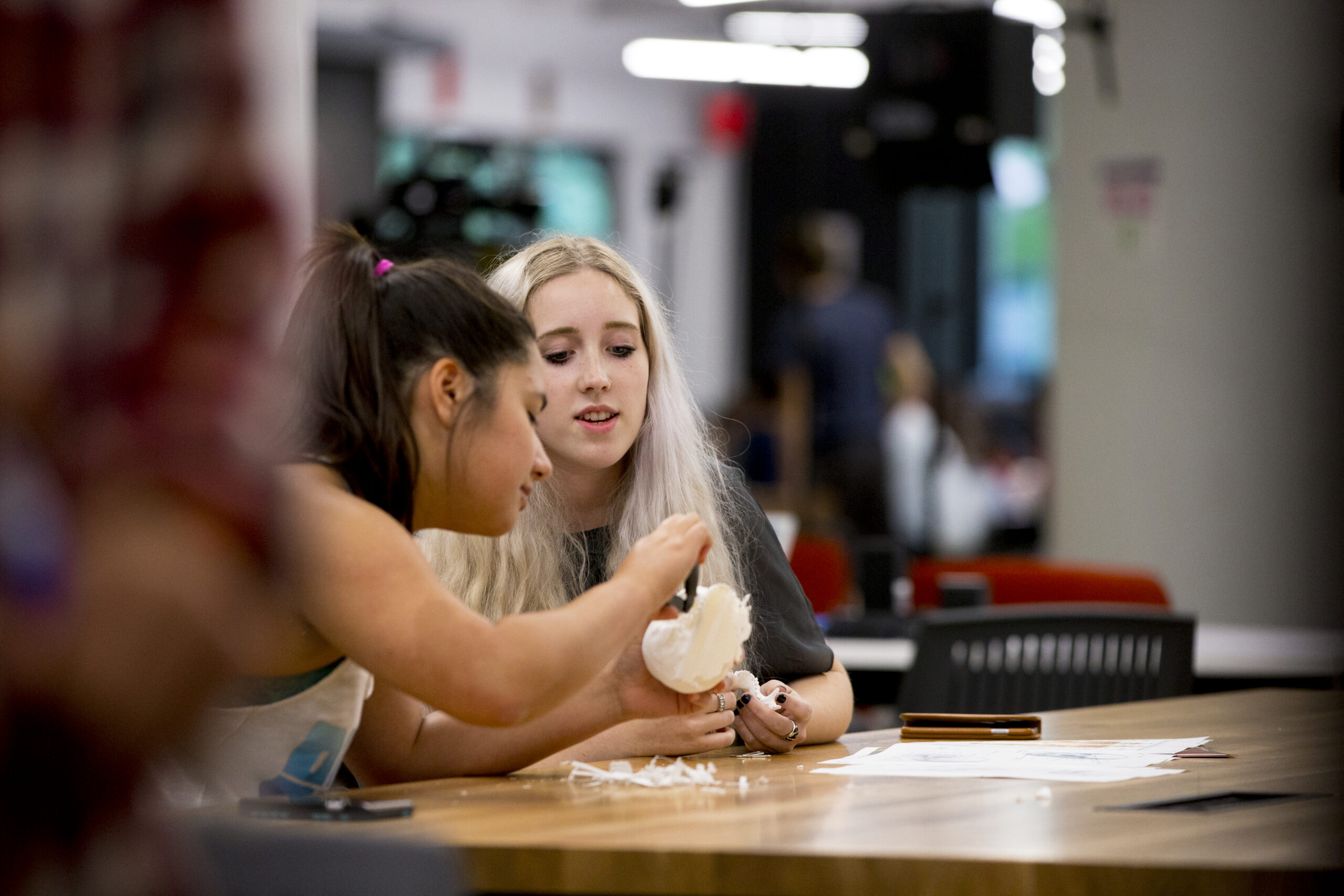
Students Are at the Helm at the MakerSpace
NYU students are in constant motion at the MakerSpace, a hub for all things experiential learning at Tandon. The 10,000-square-foot lab is equipped with 3D printers, laser cutters, and 3D scanners, available for prototyping and experimentation. For Waters, this is where the magic happens. That’s because students run the show at the MakerSpace, from training each other on how to use the equipment to doing repairs and maintenance. What’s more, Waters says she hears students asking big questions about how they’ll apply what they’re using to their futures—and what they can do to support each other. “And that’s really what experiential learning is; it’s doing and reflecting.”

